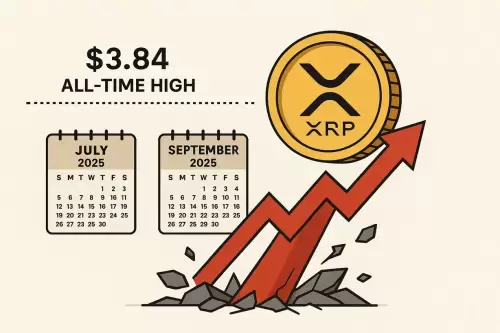 |
|
 |
|
 |
|
 |
|
 |
|
 |
|
 |
|
 |
|
 |
|
 |
|
 |
|
 |
|
 |
|
 |
|
 |
|
Cryptocurrency News Articles
Coinbase, MiCA Rules, and Crypto Exchanges: A New Era for European Crypto?
Jun 21, 2025 at 02:04 am
Coinbase navigates the MiCA landscape in Europe, setting a new precedent for crypto exchanges and regulatory compliance. What does this mean for the future of crypto in the EU?

Coinbase, MiCA Rules, and Crypto Exchanges: A New Era for European Crypto?
Coinbase's recent move in Europe, obtaining a MiCA license, marks a pivotal moment for crypto exchanges. This blog post breaks down what this means for Coinbase, the EU, and the future of crypto regulation.
Coinbase Plants Its Flag in Luxembourg: A MiCA Milestone
Coinbase has officially become the first U.S.-based crypto exchange to secure a Markets in Crypto Assets (MiCA) license within the European Union. Granted by Luxembourg's Commission de Surveillance du Secteur Financier (CSSF), this license empowers Coinbase to offer its comprehensive suite of crypto products across all 27 EU member states. Think of it as Coinbase getting the golden ticket to operate freely and legally in one of the world's largest economic zones, giving approximately 450 million Europeans access to regulated digital asset services.
Why Luxembourg?
Coinbase is making Luxembourg its new European crypto hub, shifting its base from Ireland due to the latter's lack of specific crypto-focused legislation. Luxembourg's appeal lies in its proven track record of financial innovation and its crystal-clear regulatory environment. The country has already enacted four blockchain-related laws and embraces a coordinated, government-wide approach to blockchain and distributed ledger technology.
MiCA: A Game Changer
The MiCA license consolidates Coinbase's previous licensing efforts in various EU countries, including Germany, France, Ireland, Italy, the Netherlands, and Spain, under a unified framework. This streamlining not only simplifies operations for Coinbase but also sets a precedent for other crypto exchanges looking to expand into the European market. Coinbase is actively encouraging other European regulators to follow Luxembourg's lead and adopt crypto-friendly policies, underscoring its commitment to fostering growth and innovation in the region.
Beyond Coinbase: Navigating the Crypto Landscape
While Coinbase's MiCA license is a significant development, it's important to consider the broader crypto landscape. Some users are exploring alternative avenues for crypto investments, like cloud mining platforms such as Ripplecoin Mining. These platforms offer a different approach to earning crypto, focusing on computing power contracts rather than traditional trading. While these alternatives may appeal to some, it’s crucial to do thorough research and understand the risks involved.
The Rise of Non-KYC Exchanges
Another trend to watch is the rise of non-KYC (Know Your Customer) crypto exchanges, such as Godex. These platforms prioritize user privacy by allowing individuals to buy and sell cryptocurrencies without extensive identity verification. While they offer enhanced anonymity, it's essential to be aware of the potential risks associated with these exchanges, including regulatory scrutiny and security concerns.
Looking Ahead
Coinbase's proactive approach to regulatory compliance, particularly in securing the MiCA license, positions it as a leader in the evolving crypto landscape. This move not only benefits Coinbase but also contributes to the overall maturation and legitimacy of the crypto industry in Europe. As other exchanges navigate the regulatory complexities, Coinbase's experience could serve as a valuable blueprint.
Disclaimer: The views expressed in this blog post are for informational purposes only and do not constitute financial advice. Cryptocurrency investments are inherently risky, and you should always conduct your own research before making any investment decisions.
Final Thoughts
So, there you have it! Coinbase is making moves in Europe, and the MiCA license is a big deal. Whether you're a seasoned crypto investor or just dipping your toes in the water, it's an exciting time to watch how these developments unfold. Who knows, maybe someday we'll all be paying for our morning coffee with crypto – regulated, of course!
Disclaimer:info@kdj.com
The information provided is not trading advice. kdj.com does not assume any responsibility for any investments made based on the information provided in this article. Cryptocurrencies are highly volatile and it is highly recommended that you invest with caution after thorough research!
If you believe that the content used on this website infringes your copyright, please contact us immediately (info@kdj.com) and we will delete it promptly.
-

-

-

- Ripple, Bitcoin, and Crypto History: Unearthing the Roots of Digital Finance
- Jun 25, 2025 at 08:25 pm
- Explore the intertwined history of Ripple, Bitcoin, and the crypto revolution. From Ripple's surprising early origins to NYC's bold crypto embrace, discover the key trends and insights shaping the future of digital finance.
-

-

-

-

-

-





























































